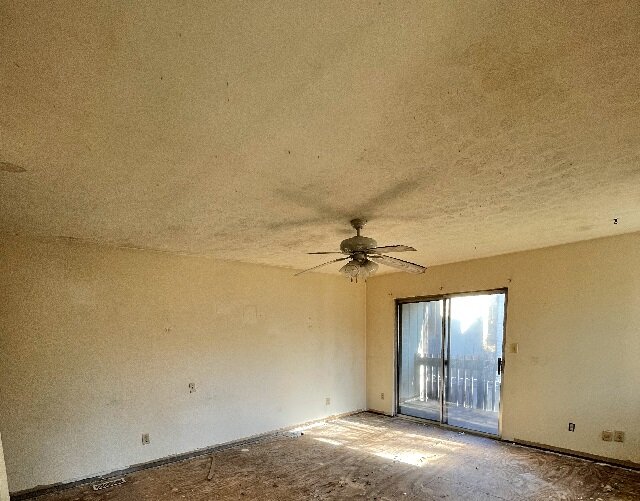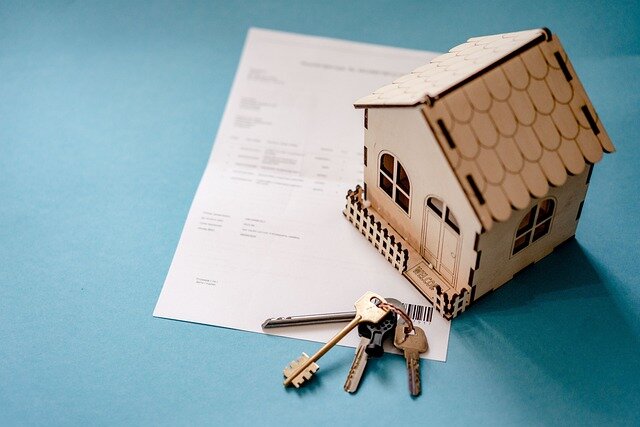Selling a residence with mold can be a difficult and stressful experience, but a trustworthy we buy houses in Shelbyville firm can provide a realistic alternative.

If you’re a homeowner dealing with a mold-infested home, contacting such a business can be a sensible and effective approach to selling.
These companies have experience dealing with homes in a variety of conditions, including those impacted by mold.
They understand the health dangers and potential consequences of mold and can evaluate the property properly.
By selling to a “We Buy Houses” firm, you can avoid the distress of finding a buyer in the traditional market, where mold issues may put potential buyers off.
These businesses will assess the property’s value based on the severity of the mold infestation and treatment costs.
They will make a fair financial offer based on the individual conditions surrounding a mold-infested residence.
This guide will highlight the steps you need to know when selling a mold-infested house to cash buyers.
What is Mold?

Mold grows in damp, warm settings. It grows on walls, ceilings, and floors and can appear in black, white, orange, green, or purple spots.
Molds are usually not a problem indoors unless mold spores land on a wet or damp spot and begin growing.
Molds have the potential to cause health problems.
Molds produce allergens (substances that can cause allergic reactions), irritants, and, in some cases, potentially toxic substances (mycotoxins).
Inhaling or touching mold or mold spores may cause allergic reactions in sensitive individuals.
Allergic responses include hay fever-type symptoms, such as sneezing, runny nose, red eyes, and skin rash (dermatitis). (1)
Selling a House with Mold Issues to We Buy Houses Firms
Understanding Mold’s Impact on Property Value

Below are the approaches you can take to understand the impact of mold on your property’s value.
Health and Safety Concerns
Mold is more than simply an eyesore; it also offers a health danger. Mold spores can cause breathing problems, allergies, and other serious illnesses.
Buyers are becoming more aware of these health risks. Imagine a prospective buyer walking through a house and finding mold patches on the walls.
Their first thought could be, “Is this place safe for my family?” Such issues can reduce property value.
Aesthetic Damage
Mold stains the walls, ceilings, and other surfaces. It is unattractive and can make a property appear neglected.
For example, a magnificent mansion with mold-infested wallpaper loses its appeal.
Buyers may hesitate to pay a premium for a home requiring considerable restoration.
Odor and Perception
Mold produces a characteristic musty odor. This odor can linger and lower a property’s perceived value even if covered.
Imagine a potential buyer visiting a home and wrinkling their nose. They may associate the smell with neglect or concealed issues, prompting them to negotiate a lower price.
Insurance And Liability
Insurance companies consider mold to be a liability. Policies frequently exclude mold-related damage, leaving homeowners responsible for cleanup costs.
Buyers may be concerned about future bills if you’re selling a mold-affected property. They will include this in their offer.
Market Perception
Real estate markets respond to trends. When mold issues are widely acknowledged, consumers become wary.
A community notorious for mold problems may see less demand and lower property values overall.
Structured Impact
Mold is more than just an aesthetic issue; it can also harm structures. Moisture-loving molds grow in moist conditions, causing wood rot, brittle drywall, and unstable foundations.
Consider a basement where mold has grown owing to insufficient drainage. The foundation may deteriorate, compromising the overall stability of the property.
Therefore, you must understand the extent of the mold damage in your home before you can even price it or put it on sale.
The extent will determine which buyers you will sell your home to, the remediation required, and how much you will sell the house for.
Identifying and Assessing Mold Problems in Your Home

Identifying mold problems requires a mix of visual inspection, understanding moisture sources, and recognizing potential health hazards.
Visual Inspection: Signs of Mold
- Discoloration: Look for patches of discoloration on the walls or ceiling. Mold typically appears as black, green, or brown patches.
- Water Stains: Stains caused by water leaks or condensation may suggest mold growth nearby.
- Musty Odor: Mold has a characteristic musty scent. If you discover a foul odor, explore more.
- Warped Wood: Mold can cause wooden surfaces to warp or distort.
- Peeling Paint or Wallpaper: Mold-induced moisture intrusion can cause paint or wallpaper to peel.
Hidden Mold: Where to Look
- Behind Walls: Mold can develop behind walls or wallpaper, particularly if there has been water damage.
- Under Carpets: Moisture trapped under carpets can promote mold growth.
- Basements and crawl spaces: These locations are moist and have limited ventilation, making them ideal for mold growth.
- HVAC Systems: Mold can grow in air ducts and vents.
Health Implications: Mold and Your Wellbeing
- Allergies: Mold spores can cause allergic symptoms like sneezing, coughing, and skin irritation.
- Toxic Mold: Certain molds create mycotoxins, which can be dangerous if inhaled or consumed.
- Respiratory Issues: Prolonged mold exposure can aggravate asthma symptoms or lead to respiratory infections.
Professional Assessment and Remediation
- Hiring Experts: Consider hiring a professional mold inspector to thoroughly evaluate your property.
- Sampling and testing: Air and surface samples are used to detect mold types and concentrations.
- Remediation Strategies: Remediation entails cleaning up contaminated areas, repairing moisture sources, and preventing future growth.
Remember that dealing with mold requires prompt action. Understanding mold issues allows you to make informed decisions, whether you want to sell my house fast Shelbyville or simply maintain a healthy living environment.
Hire a Licensed Mold Remediation Company
Hiring a skilled mold remediation firm is essential when dealing with a mold problem in your house.
If left ignored, mold can create major health hazards as well as structural harm.
This section will look at the value of employing professionals for mold cleanup and share helpful ideas from several angles.
Proficiency and Experience
Professional mold remediation companies possess the essential knowledge and experience to successfully identify and handle mold problems.
They are skilled in proper mold removal techniques to ensure that the mold is totally destroyed and does not return.
Effective Remediation
Mold remediation is the safe and effective removal of mold and prevention of its spread using specialist equipment and techniques.
Professionals have access to advanced tools like HEPA filters and negative air machines, which ensure that mold spores are confined and not discharged into the environment throughout the remediation process.
Health and Safety
Mold can emit toxic spores that can cause respiratory problems, allergies, and other health issues.
Professional mold remediation businesses prioritize tenant health and safety by adhering to industry regulations and employing proper personal protective equipment (PPE) during the remediation procedure.
Comprehensive Assessment
When you call a competent mold remediation firm, they will thoroughly inspect your house to identify the degree of the mold problem.
This examination includes determining the source of moisture that is causing mold growth, as addressing the underlying cause is critical for long-term mold prevention.
Insurance and Liability
Hiring a skilled mold treatment business might also help when dealing with insurance claims.
They can give paperwork and evidence of the mold problem, bolstering your claim and ensuring adequate coverage for the treatment process.
Prevention and Restoration
In addition to eradicating mold, expert remediation companies work to prevent future mold growth and restore afflicted areas.
They may suggest steps such as boosting ventilation, repairing plumbing leaks, or adding mold-resistant coatings to avoid mold recurrence.
Pricing Strategies for Selling a Home with Mold

Assess the Extent of Mold Contamination
Before selecting a price, it is critical to assess the extent of the mold problem. Is it limited to a small area (e.g., bathroom) or extensive (e.g., entire basement)?
A professional mold examination can yield reliable results. Example: Consider a home with mild surface mold in the bathroom.
In this situation, the impact on price may be low, especially if the cleanup is simple.
However, if major parts of the house are covered by mold, the price will be lowered significantly.
Adjust Comparable Sales
Real estate brokers utilize comparable sales (comps) to estimate a home’s value. Adjustments are required when comparing mold-affected attributes.
For example, if a similar home sold for $300,000 without mold but yours does, consider reducing the price by a modest amount (e.g., $10,000).
You can also check how many comparable homes with mold sold in the area and the duration of time it took to sell these homes.
This will help you price your home accordingly.
Disclose and Educate
Transparency is essential. Make potential purchasers aware of the mold problem right away.
Provide documentation of inspection and remediation efforts. As a seller, you are responsible for providing a detailed report explaining the mold history, cleanup processes, and preventive measures.
This will give the buyer insight into your pricing decision.
Consider Buyer Perception
Buyers frequently react strongly to the phrase “mold.” It conjures up visions of health risks and expensive repairs.
As a seller, you must handle these issues. For example, a buyer may discover apparent mold on the walls during a property tour.
Even if it’s only superficial, their perspective may influence them to negotiate a cheaper price.
Therefore, when pricing your home, consider buyer perception and price your home accordingly so buyers don’t give an extremely low price.
Price Reduction Versus Remediation
Sellers are faced with a dilemma: should they lower the price or invest in mold remediation?
The selection is based on market conditions, budget, and urgency. For example, a seller in a competitive market may choose remediation to maintain the home’s value.
In a stagnant market, price cuts may entice more customers.
If you opt to lower the selling price, consider selling your residence to we buy houses Shelbyville organizations.
These organizations don’t expect sellers to remediate their homes or replace anything in the house.
They specialize in buying distressed homes, such as homes infested with mold.
Offer a Mold Allowance
Rather than lowering the list price, consider including a mold allowance.
This allows buyers to remedy the issue after the sale. For example, a seller agrees to credit the buyer $6,000 at closing to cover mold-related repairs or remediation costs.
Alternatively, you can sell your home to we buy houses Louisville, KY organizations for a fair price and avoid having to credit them any amount of money.
Staging and Presentation
A well-staged property helps buyers overlook small imperfections. To offset mold fears, highlight your property’s beneficial characteristics.
For example, beautiful landscaping, a new kitchen, and large living areas might mask the presence of mold.
Market Position
Position your home wisely. If other homes in the community have mold problems, highlight your proactive approach to remediation.
For instance, you can offer your house as “Mold-Free After Professional Remediation” to distinguish it from surrounding properties.
Negotiation Flexibility
Be prepared to negotiate. Buyers might request additional price reductions or mold-related fixes.
For example, a buyer may request an additional $3,000 decrease owing to mold. As the seller, you should weigh the costs and benefits and come to an agreement.
Time on Market Impact
The longer a mold-affected home is on the market, the more purchasers see it as an issue.
In this scenario, price modifications are necessary. For example, you can sell your home at market value but drop the price by 5% after three months if you don’t get any offers.
Disclosing Mold Issues to Potential Buyers
When exposing mold issues to prospective purchasers, providing transparent and accurate information is critical.
Mold can be a major issue for homebuyers since it can adversely affect the structural integrity of a home and provide health risks.
In this section, we will look at numerous approaches to exposing mold problems and provide in-depth insights to assist you in managing the situation efficiently.
Understand the Legal Obligations

Sellers are usually required to disclose any known mold hazards to prospective buyers.
Mold disclosure laws differ by province, so it’s critical to understand the exact requirements in your location. Failure to disclose mold issues might result in legal ramifications and potential litigation.
Provide Detailed Information
When discussing mold issues, being open and providing actual facts is critical. Describe the location, extent, and nature of the mold growth on your property. Include any cleanup measures you’ve completed or intend to conduct. Providing this degree of knowledge allows potential purchasers to make informed selections.
Emphasize Remediation Measures
If you used expert remediation to handle the mold problem, highlight the efforts you took to resolve it. This may entail engaging professional mold remediation specialists, performing proper cleansing and removal, and establishing preventive steps to avoid future mold growth. Sharing this information suggests that you are taking proactive steps to resolve the issue.
Hire a Professional Mold Inspector
To get a thorough picture of the mold problem in your house, consider contacting a certified mold inspector.
They will do a complete inspection, determine the type and degree of mold growth, and issue a detailed report.
This report can be used as essential documentation to share with prospective buyers.
Consider Professional Documentation
If you have had mold treatment, acquiring a clearance certificate from a qualified mold inspector will reassure potential purchasers.
This certificate shows that the property has been adequately remediated and is free of mold-related issues.
Educate Potential Purchasers
In addition to disclosing mold issues, use the opportunity to educate potential purchasers on mold prevention and upkeep.
Provide them with resources and ideas for preventing mold growth, such as proper ventilation, moisture control, and regular inspections.
Disclose Any Previous Water Damage
Underlying water issues frequently cause mold development. If your property has already had water damage, you must disclose this information to potential buyers.
Explain the cause of the water damage, the procedures taken to repair it, and any preventive measures adopted to reduce future risks.
Highlighting Other Selling Points for Your Property

Since it can be hard to sell a home with mold issues, consider putting emphasis on additional selling points it has, including:
Location
From a real estate standpoint, location is frequently the most important factor. Highlight the benefits of your property’s location.
- Convenient access to schools, parks, retail malls, and public transportation.
- The crime rate is low in your neighborhood.
- Desirable school districts or access to excellent education.
- Nearby recreational areas, including beaches, hiking trails, and golf courses.
Outdoor Spaces
- A well-designed and huge outside space can be a significant selling point.
- Outdoor recreational areas such as patios, fire pits, decks, and balconies.
- Fenced yards for those who prefer privacy or have pets.
- Views include mountains, cityscapes, and waterfront panoramas.
Unique Features
- Architectural highlights such as crown molding, exposed beams, and custom-built pieces.
- Landscaping, such as a well-kept garden, mature trees, and a delightful backyard.
- Energy-efficient renovations like solar panels, smart thermostats, and energy-saving appliances.
Renovation and Upgrades
- Kitchen and bathroom remodels, including new countertops, cabinets, fixtures, and appliances.
- Flooring options like hardwood, tile, and eco-friendly materials.
- New paint: Neutral hues create a clean and welcoming environment.
- Roof, HVAC, or electrical updates: These increase value and provide peace of mind.
Remember, if you opt to sell your home to We Buy Houses firms, you won’t need to hire mold remediation professionals or complete any renovations and upgrades.
These firms buy houses as-is and can close the sale within two weeks.
